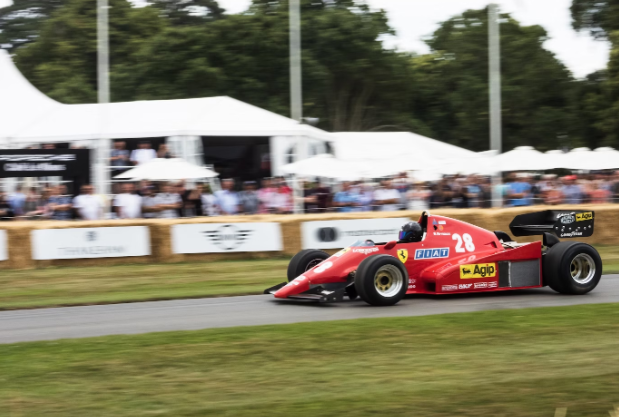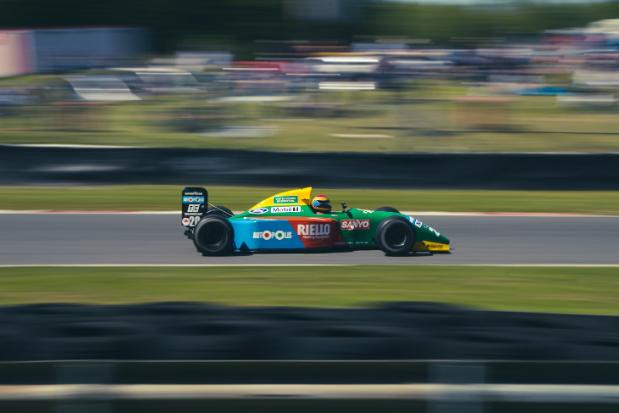Which Formula One teams have seen the most success? In the fast-paced world of Formula 1, constructor championships, renowned drivers, and ground-breaking inventions are indicators of success.
This article highlights the most successful Formula One teams. It starts with Ferrari’s record-breaking history and briefly discusses Mercedes’ recent domination.
Explore the racing teams that have left their mark on motor racing history as we delve into the core of racing brilliance.
Formula 1 Titans: The Teams with the Most Constructors Championships
The Constructors’ Championship has been awarded since 1958 to honor a Formula 1 team’s overall performance and technological prowess.
Ferrari is the undisputed leader in this arena, having won sixteen constructors’ titles.
The brand is practically associated with Formula 1 success and represents the pinnacle of Italian flair and engineering expertise on international circuits.
British powerhouses McLaren and Williams are closely pursuing each other within this elite motorsport sector. Williams, who holds nine esteemed constructors titles, left a lasting impression in the 1980s and 1990s.
Similarly impressive are McLaren (and sister team Mercedes), who have eight constructors titles under their belts.
These teams are knitted together with a history of grand prix victories and world champion drivers who have become legendary, guaranteeing their place in motor racing legend.
The biggest names in Formula 1 go beyond winning totals, drawing attention from fans, those interested in Formula 1 betting, and enthusiasts alike. Their unrelenting passion for winning at every chance sets them apart.
Mercedes proved their dominance from 2014 to 2021, winning six straight constructors’ titles to add to their seven.
This shows that Mercedes is not just about conquering; it also symbolizes their unwavering pursuit of perfection, which is still the pinnacle of Formula One dominance.
Drivers Who Elevated Their Teams to Glory
As drivers buckle up to the asphalt, they transform into tarmac titans, their victories cementing their teams’ place in racing history.
Michael Schumacher’s unrivaled five driver championships were a pillar for Ferrari during their six consecutive constructors titles at the start of this century.
Schumacher and his team’s mutually beneficial partnership gave rise to an era of dominance that is still celebrated today.
The Formula 1 history books are replete with stories about how drivers’ steadfast resolve and skill set the stage for their teams to reign dynastically.
During the late 1980s and early 1990s, McLaren’s dominance in the constructors championship was spurred by the legendary rivalry between Ayrton Senna and Alain Prost. Behind Max Verstappen, Red Bull Racing became a powerful force.
His victory in the 2021 drivers’ championship signaled the beginning of a new era in which Red Bull once again became the world champions.
From Niki Lauda’s coolness to Gilles Villeneuve’s joy on the track, each driver has written a significant part of their team’s renowned story.
Not only have driving champion titles brought individual glory to these icons like Damon Hill with his strategic mastery or Sebastian Vettel with his unrestrained speed, but they have also propelled their F1 outfits to the pinnacle of motor racing, claiming eternal honor for themselves and raising their constructors along with them.
Moments of Triumph: Key Races That Defined Championship Wins

The constructors championship is frequently decided in the heat of the grand prix, amid the drama and duels.
In addition to winning their first championship, Vanwall’s historic 1958 victory also signaled the start of the constructors’ championship, which fundamentally altered the structure of Formula 1.
After Brabham’s victory in 1966, the racing world was alerted to a new contender prepared to upend the established order.
Mercedes, a shining example of success in the modern period, made history in Formula One when they won their first constructor title in 2014.
This crucial event signaled the beginning of a new period of dominance for the German automaker, one that would see records being broken.
In the meantime, Michael Schumacher’s nearly flawless performance during Ferrari’s 2002 season established the benchmark for a championship-winning campaign.
Every race, from the grandeur of the Monaco Grand Prix to the drama of the season’s last race, has the power to define a team’s legacy.
These triumphant moments are not just about the wins; they also represent a team effort, strategic planning, and unwavering drive for perfection that turns a race victory into a world championship.
From this perspective, winning races are benchmarks on the road to greatness.
Innovations That Led to World Titles
In Formula 1, teams frequently base their world title bids on an unwavering pursuit of innovation.
As introduced by Lotus, ground-effect aerodynamics changed more than just their fleet. It changed the paddock’s entire performance paradigm.
Similarly, McLaren broke records for overall performance and new safety regulations in 1981 by releasing their carbon fiber monocoque MP4/1.
When Ferrari unveiled its semi-automatic transmission in 1989, it altered the game; this wasn’t only a tiny tweak.
This redesign was so successful that it was incorporated into all subsequent Formula 1 car designs, redefining competition throughout the sport.
Throughout the sport’s history, teams have been driven to continuously push technological boundaries to gain supremacy, resulting in radical changes to engineering and racing strategies.
However, there are regulatory obstacles to this innovative path. Various innovations, such as active suspension and traction control, which initially gave some teams a considerable competitive advantage, have been restricted by regulating bodies.
The conflict between regulatory control and creative spirit exemplifies how Formula 1 is evolving since winning a world title represents supreme driving skill and the pinnacle of racecraft and ingenuity.
The Rise and Fall of Legendary F1 Teams

The legends of Formula 1 are shaped not only by their on-track exploits but also by the tales of their ascent and the challenges they faced.
Williams is a prime example; after peaking in the 1980s and 1990s, his fortunes fluctuated, but he remained competitive despite these setbacks.
With a historic history filled with highs and lows, McLaren also reflects this epic journey.
The team has succeeded partly because of world champions like Jenson Button and Lewis Hamilton.
The Brabham squad, founded by Jack Brabham himself, achieved ultimate success in the 1960s when they won championship crowns. Bernie Ecclestone’s acquisition solidified their place in the running.
On the other hand, Red Bull Racing emerged as a dominant force in the mid-2000s, winning multiple races and titles thanks to a significant rules change in 2009.
These legendary teams represent the dynamic nature of Formula 1, in which the leaders of one day may turn out to be the underdogs of the next.
These entities stand out as legendary individuals in Formula 1 lore because they strive for victories at events like the Monaco Grand Prix and form strategic relationships while managing changes within the sport.
The Numbers Game: Statistics Behind the Success
In Formula 1, statistics frequently have a more significant impact than engine noise.
With an impressive 262 Grand Prix victory, Scuderia Ferrari commands the top spot on the podium, demonstrating their long-standing dominance in the sport.
With its impressive record of 184 victories, McLaren is remembered as an example of the tenacity and creativity that have sustained their competitiveness over the years.
Mercedes, which finished third with 125 Grand Prix wins overall, demonstrated that greatness is more than just following the past; it also involves creating a new route to success.
The data paints a more comprehensive picture of the scene. British constructors combined collected the most Grand Prix victories (520), demonstrating their considerable impact on the sport.
With 266 triumphs, Italian teams—led by the unstoppable Ferrari—secured the second-highest national total, demonstrating their skill and love for Formula 1.
These figures tell a story of victory, tenacity, and the unwavering chase of speed—they are more than a total.
They stand for times of happiness and sorrow and the unwavering spirit that propels every team to strive for the elusive checkered flag when the team prevails.
Emerging Challengers: Today’s Contenders for Future Titles
With rising competitors ready to make their marks in the annals of racing history, a new age for Formula 1 is dawning as the era of established champions ends.
These teams have strengthened their competitive advantage and demonstrated their intention to go up to the top of the Formula 1 standings by forming strategic alliances, such as Aston Martin’s with Cognizant.
Their development strategies now revolve around investments in cutting-edge facilities and engineering know-how, demonstrating a dedication to quality reminiscent of the sport’s legends.
These teams may disrupt the established order of the constructors’ championship, as evidenced by their recent podium results and better qualifying positions.
These up-and-coming competitors have the potential to win world titles in the hybrid era of Formula 1 when talent and technology are more closely aligned than ever.
Their rise illustrates how the sport is dynamic and constantly changing, with today’s underdogs having the potential to become tomorrow’s world champions in the quest for the ultimate title.





